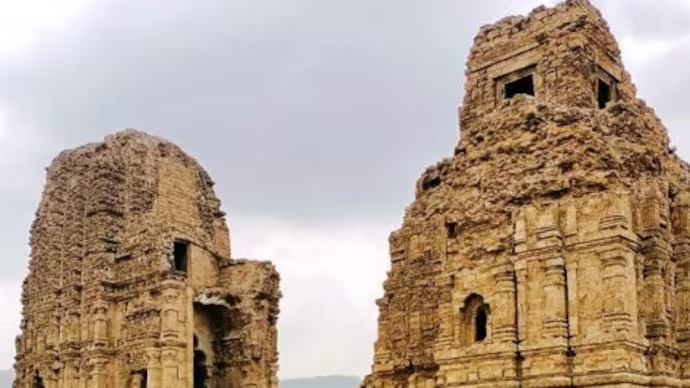In a move stirring controversy and drawing condemnation, a historically significant Hindu temple situated near the Pakistan-Afghanistan border in the Khyber Pakhtunkhwa province has been razed to the ground. The temple, known as the ‘Khyber Temple,’ once stood as a symbol of religious heritage in the border town of Landi Kotal Bazaar in the Khyber district.
However, it has remained closed since 1947, when the local Hindu families migrated to India. Over the years, neglect and lack of upkeep by the Islamic State led to its gradual decay, culminating in its demolition to make way for a commercial complex.
Construction work for the shopping complex commenced approximately 10–15 days ago, sparking outrage among local residents and drawing attention to the neglect of historical landmarks. Officials from various administrative departments of Pakistan have either claimed ignorance about the temple’s existence or asserted that the construction was carried out in compliance with regulations.
Local journalist Ibrahim Shinwari challenged the assertions of district administration and municipal authorities regarding the temple’s absence from official land records. He recalled the temple’s prominent location in the heart of Landi Kotal Bazaar and highlighted its significance in local folklore, emphasising its existence despite claims of oblivion.
He said, “The temple was located in the centre of the Landi Kotal bazaar, which was closed in 1947 after the local Hindu families migrated to India. It was partially damaged by some clerics and others in 1992 following the demolition of the disputed structure at Ayodhya in India.”
He added, “There is no doubt in it that there was a temple named ‘Khyber Temple’ in Landi Kotal.” He also recalled that, as a child, he heard many stories about the temple from his forefathers.
Representing the Pakistan Hindu Mandir Management Committee, Haroon Sarabdiyal underscored the responsibility of the district administration and government bodies to preserve and restore historically significant religious structures belonging to non-Muslim communities. He cited the 2016 antiquity law, which mandates the protection of such sites, including places of worship, by relevant departments.
He said, “The archaeology and museums department, police, culture department, and local government were bound by the 2016 antiquity law to protect such sites, including places of worship.”
In response to the controversy, Muhammad Irshad, the Assistant Commissioner of Landi Kotal, expressed ignorance regarding the temple’s demolition, citing official land records that purportedly omitted its existence. He clarified that the land in Landi Kotal Bazaar was owned by the state, further stating that permissions had been granted for the restoration and repair of certain old shops, not the demolition of religious structures.
Tehsil Municipal Officer (TMO) Shahbaz Khan defended the local government’s actions, asserting that all construction projects were approved only after scrutiny of maps and payment of requisite fees. However, former TMO Abdus Samad claimed no knowledge of any directives related to the temple’s demolition during his tenure.
Ibrahim Shinwari criticised the administration’s apathy, highlighting the absence of an office or employees of the auqaf department in the Khyber tribal district. He stressed the need for preservation efforts, citing testimonies of aged tribal elders affirming the temple’s existence.
Haroon Sarabdiyal suggested repurposing unused or dilapidated structures for social welfare activities, promoting communal harmony and benefiting local communities.
The demolition of the Khyber Temple has reignited debates on religious tolerance, heritage preservation, and governmental accountability, underscoring the need for proactive measures to safeguard Pakistan’s diverse cultural heritage.



















Comments